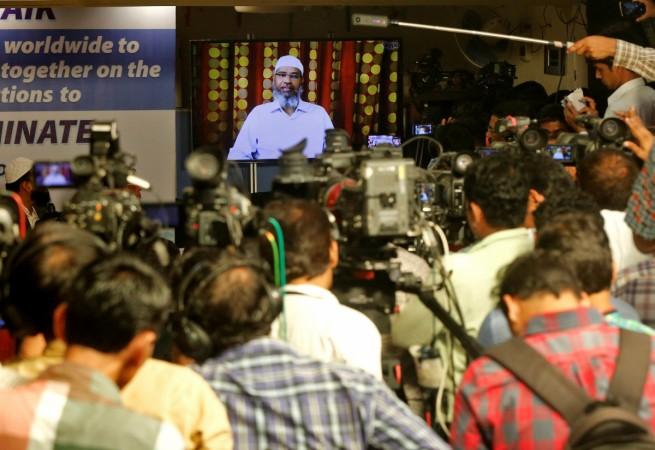
The Centre is likely to slap terror charges on Islamic television preacher Zakir Naik for inciting more than 50 people who have been accused in cases associated with terrorism. The government may also declare his NGO, Islamic Research Foundation (IRF), an 'unlawful' organisation that would be banned.
Naik has been accused of motivating the terrorists behind the Dhaka cafe attack — one of the deadliest attacks in Bangladesh — in which 22 people, including 19-year-old Indian student Tarishi Jain, were killed. The action plan against Naik has been sketched out on the basis of his public speeches, the Times of India quoted government sources as saying.
The home ministry has decided to charge Naik under the Unlawful Activities Prevention Act (UAPA) for his speeches, which contain jihad-inspiring content. "The primary ground for invoking terror charges against Naik are statements by those involved in past terror acts, conceding that they were motivated by his speeches," an intelligence officer told the publication.
Naik has not returned to India ever since a probe in the Dhaka cafe attack found his speeches to be the prime motivation of the jihadis who attacked the eatery in Bangladesh. Considering the situation, Naik is not likely to return to India soon.
Some of the terrorists who have recorded statements against Naik include Feroze Deshmukh, a former IRF employee arrested for his alleged role in the 2006 Aurangabad arms haul case; Qateel Ahmed Siddiqui, an Indian Mujahideen member murdered inside Pune's Yerwada prison in June 2012; and Afsha Jabeen, an alleged IS recruiter who was arrested in September 2015 on deportation from the UAE.
The government is also set to impose a ban on Naik's NGO, IRF, for spreading hatred in religious communities through public speeches and forced conversions by its members. According to reports, one of the brothers of the 17 Kerala youth who are suspected to have fled India to join the Islamic State (Isis) was forced by the IRF to convert to Islam.









!['Had denied Housefull franchise as they wanted me to wear a bikini': Tia Bajpai on turning down bold scripts [Exclusive]](https://data1.ibtimes.co.in/en/full/806605/had-denied-housefull-franchise-they-wanted-me-wear-bikini-tia-bajpai-turning-down-bold.png?w=220&h=138)



